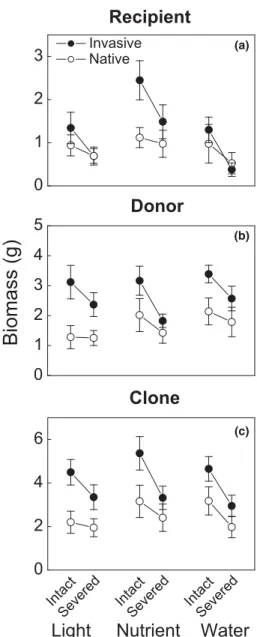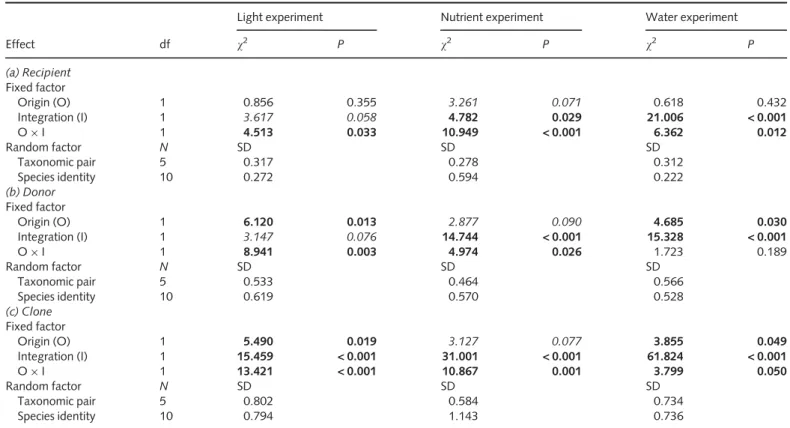Invasive alien plants benefit more from clonal integration in heterogeneous environments than natives
Texte intégral
Figure


Documents relatifs
alien species, biodiversity, climate change, ecosystem services, management scenarios, Nature’s Contribu- tion to People, non-native species, participatory planning, risk
Under natural conditions, females of C. ohridella oviposited on various plant species that were nearby horse-chestnut trees with very high densities of leaf mines. Eggs and mines
Table 1 Logistic regression models relating the outcome of the introduction of American bullfrog in Europe (invasive vs. not invasive) to the suitability predicted on the basis
n The species colonised natural and artificial wetlands in the two regions, notably the park and national nature reserve in the town of Saint-Quentin-en-Yvelines, as well as
n In 2009, a steering committee for invasive plant species was set up by the water stakeholders in the river basin to identify their mutual needs and define the necessary
Due to its broad global distribution and widespread effects on native biodiversity through various impact mechanisms, the American bullfrog is listed as one of the top 100
complimentary expertise across taxa in each of the respective terrestrial, freshwater and marine environments.. Each expert was given an IAS list relevant to his/her group.
The RAPID Life Project (Reducing and Preventing IAS Dispersal) and the Belgian Forum on Invasive Species (BFIS) are co-organising an event in Brussels to facilitate the exchange